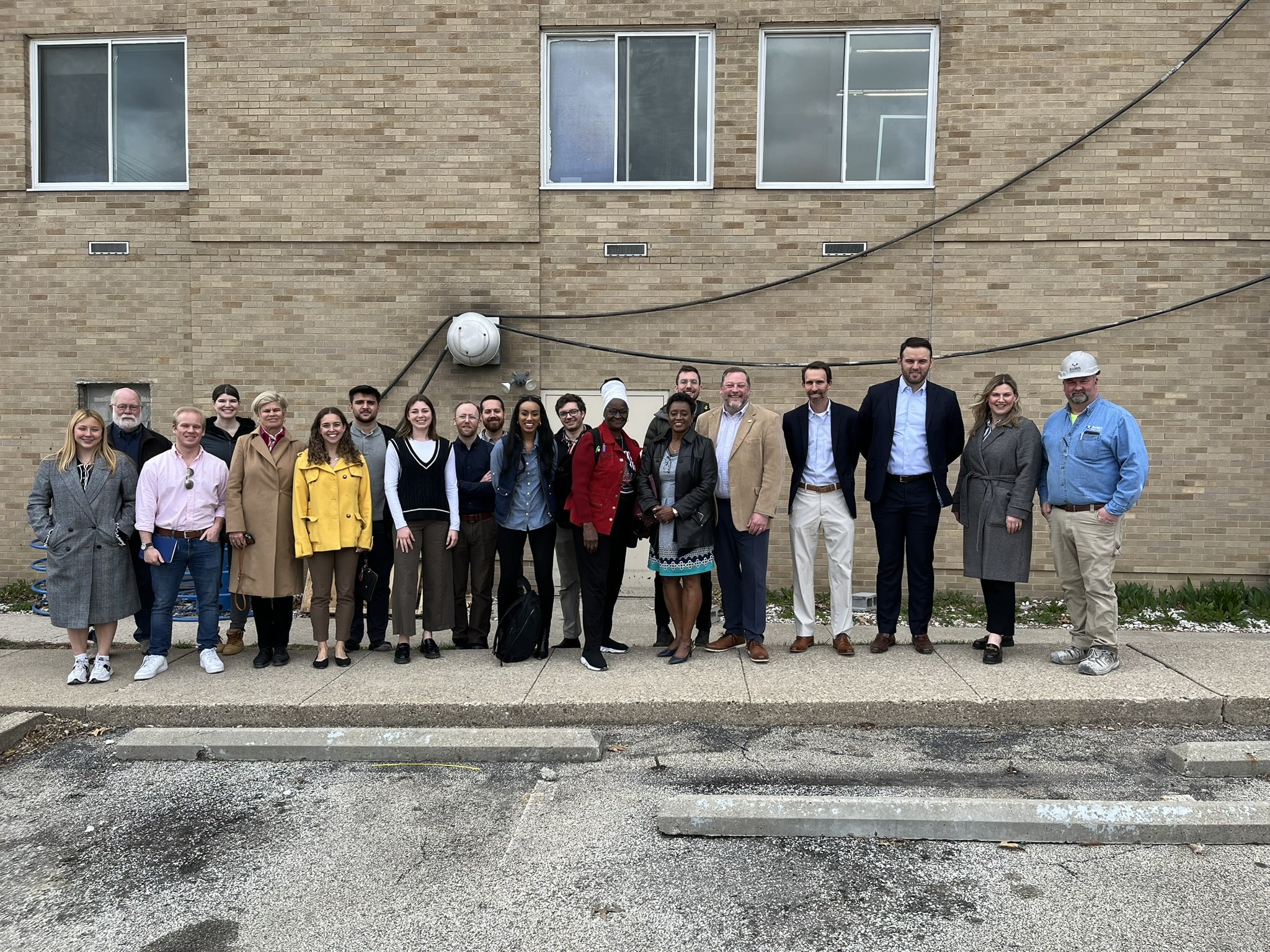$5 Million in Federal and $1 Million in State NMTC Investment Helps Talbert House Launch New Hamilton County Crisis Center at 510 Oak Street
In a major step toward expanding behavioral health resources across the region, Talbert House is developing the new Hamilton County Crisis Center in Avondale. Located at 510 Oak Street, the facility will offer comprehensive mental health and addiction treatment services in a centralized, accessible setting. To support the acquisition and redevelopment of the 46,928-square-foot site, Uptown Consortium Inc. (UCI), a managed entity of The Port, allocated $5 million in federal New Markets Tax Credits (NMTCs) and $1 million in state NMTCs in April 2025. Additionally, Fifth Third Bank, the tax credit investor, contributed an additional $5 million from its federal NMTC allocation to advance the project.
The new $11.7 million facility will deliver a full range of services, from inpatient crisis stabilization to outpatient support and peer recovery, in Uptown Cincinnati, the hub of the region’s healthcare systems. By offering timely care in a centralized, community-based setting designed for accessibility and impact, the center is expected to serve up to 1,500 individuals each year.
“This project is transformational—not just for the people we serve, but for how we deliver care,” said Josh Arnold, President & CEO of Talbert House. “By creating a centralized hub for crisis and recovery services, we’re ensuring that individuals and families in our community can access the support they need, when and where they need it.”
Delivering Essential Services, All in One Place
The Hamilton County Crisis Center will serve as a hub for urgent and ongoing care. The facility will include programs for addiction withdrawal management, psychiatric treatment, residential recovery, and primary care. It also introduces new services not previously available in the region, such as the Crisis Receiving Center, a short-term alternative to hospital admission for individuals in psychiatric crises. Transitional residential programs will also support individuals moving from inpatient care back into the community.
By integrating services in one location, the center will ease pressure on Uptown’s hospitals, reduce unnecessary hospital stays, and improve the experience for individuals navigating behavioral health challenges.

Creating Jobs and Opportunities
The development of the Crisis Center is going to continue to provide ongoing jobs while also generating new workforce opportunities. Construction of the Crisis Center is already generating 28 jobs. Hiring efforts are focused on providing accessible, high-quality employment opportunities for individuals who have historically faced barriers to the workforce.
Once operational, the center will support 104 full-time positions, including healthcare professionals, peer recovery coaches, and administrative staff. To meet growing demand, 14 additional full-time roles will be created, with 17 more anticipated from service partners co-locating at the facility.
The Crisis Center kitchen will produce over 660,000 meals a year nourishing not only the clients housed at the Crisis Center but other Talbert House and human services programs across Cincinnati. A partnership with Genoa Healthcare will ensure clients have access to medications needed for their overall health and recovery. This pharmacy will also be available to the community Monday through Friday.
“This is exactly what the New Markets Tax Credit program was designed to do: catalyze community-led investments that address urgent needs and expand opportunity,” said Laura N. Brunner, President & CEO of The Port. “The Crisis Center is a permanent, purpose-built response to the region’s growing behavioral health needs. It’s an investment in public health and economic resilience, and we’re proud to support it.”
Investing in Long-Term Community Health
The project aligns with Talbert House’s mission to empower individuals and families to live healthy, productive lives. By uniting crisis response, ongoing treatment, and social support services, the Hamilton County Crisis Center will be a vital part of the region’s healthcare safety net.
With strong partnerships and critical NMTC financing, this investment is building a more responsive, equitable behavioral health system — one that not only saves lives but also creates pathways to stability and recovery for those who need it most.
Click here for more information on Talbert House and its services and mission.
Click here for more information on Uptown Consortium and The Port’s partnership.
If you have any questions on UCI’s NMTC program, please contact Brooke Rapp, Director of Community & Economic Development for The Port, at brapp@cincinnatiport.org.